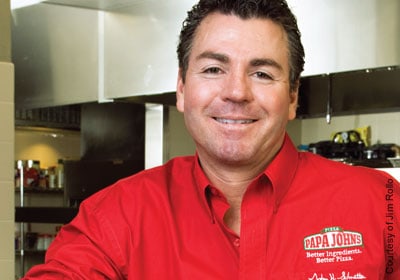
In the last five years, the only person to ask me how my faith is doing is my friend, Chris.
He’s an atheist. And when he asked, he really meant it.
I don’t mean to suggest that all well-intentioned and genuine inquiries from Christian friends, family and that one guy who always phrases it “How’s your walk?” are not meaningful. It’s just that, usually, I want to tell that guy, “I’m limping” and it wouldn’t go over so well. When you’re asked a question in Christianese, there is an expectation that you’ll answer in kind, and—if it’s not something on the “I’ve just been so blessed during this season” spectrum—you’re probably going to prompt the other person to pull out their best I’ll-Pray-For-You face.
You know the one: a furrowing of the eyebrows that masks disappointment with a shade of tenderness, a slow nod and a hand on your shoulder. In other words, every time this happens, I inevitably get the message that I’m not as close to God as this other person.
I grew up Christian through-and-through. I was baptized at age 10 by my own choice, attended a Christian kindergarten, elementary-middle-high school, college and then worked on staff at that college until I was 25. I know the pray-face well.
In all that time, there’s rarely been a conversation where I was asked about my faith and I didn’t feel the pressure to figure out what kind of answer the inquirer wanted and then respond in that way. Even now, I want to replace “rarely” with “never,” but I’m already paranoid readers will start to bow their heads.
To be fair, I’m sure most of this paranoia is self-inflicted. However, I’ve learned over time that it’s easier to say what they want to hear and then deflect with a joke. The reality is, you’re not just answering for yourself but also for the state of your theological leanings. Your answer needs to do the surface work of telling someone you’re fine, all while implying your doctrine is still watertight.
Plus, there are only so many times you can be told that you’re going to be prayed for before you start thinking you’re completely incapable of doing it yourself.
So when a tattooed, 6-foot-plus, atheist blogger and humanist chaplain at Harvard was sitting in my living room, in a chair far too small for him, and asked me how my faith was, for the first time in my life I had no idea what to say. And this was a very good thing. I didn’t have to tailor my answer for a Calvinist or a Charismatic or a liturgaphile.
For the first time, I could say out loud, “I’m not okay.”
The reason I need atheists is because I need doubt without a ceiling. A smattering of edgier teachers suggest that there is such a thing as redemptive or holy doubt and that it’s okay to Question Authority—as long, they go on to qualify, as it’s within a faith framework and you make sure you don’t stay (or “wallow”) in that place for too long.
My atheist friend could care less how big my doubt is, and he really had no interest in pushing that doubt to the point of recantation. As a humanist and interfaith worker, he finds ways to connect to people of all (or no) faith and see what kinds of things we can work together on, rather than inflate an already bloated and obvious debate. The times where his work is most vehemently attacked, curiously, is by those that share his beliefs. I’m not suggesting you all go out and find a token atheist to tell all your problems to. The point is to approach relationships without predefined expectations of behavior. Find something in your experience that allows you to say what you’re most afraid to say without fear of being categorized.
As Christians, we have a long, inspiring history of inclusive, unanswered doubt (St. Wikipedia dubs it “authentic confusion”). St. John of the Cross’ Dark Night of the Soul suggested that doubt wasn’t just something backsliders went through, but that it was as natural as the passing of hours from dark to light. C.S. Lewis wrote A Grief Observed, not A Grief Ignored. Sufjan Stevens sings that he “want[s] to be well” on a record that ends with the repeated line “We made such a mess together.”
And that’s the power of trench-level doubt, of a saved mind that dares ask in fear-and-trembling ways what exactly it all means without immediately couching the question in some oversimplified homiletic remedy.





















